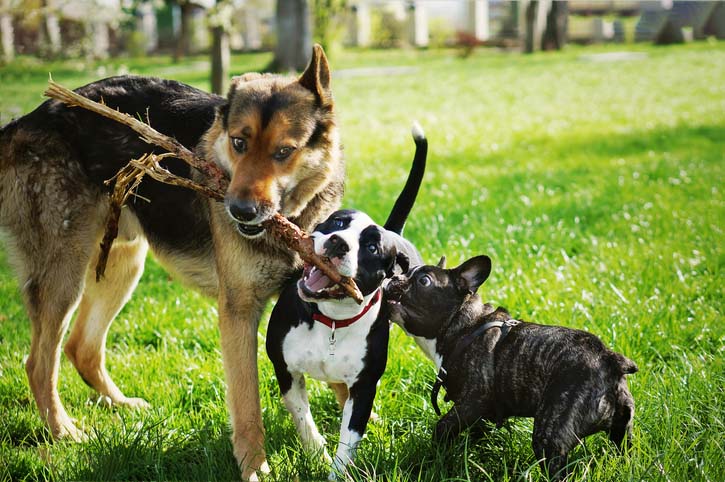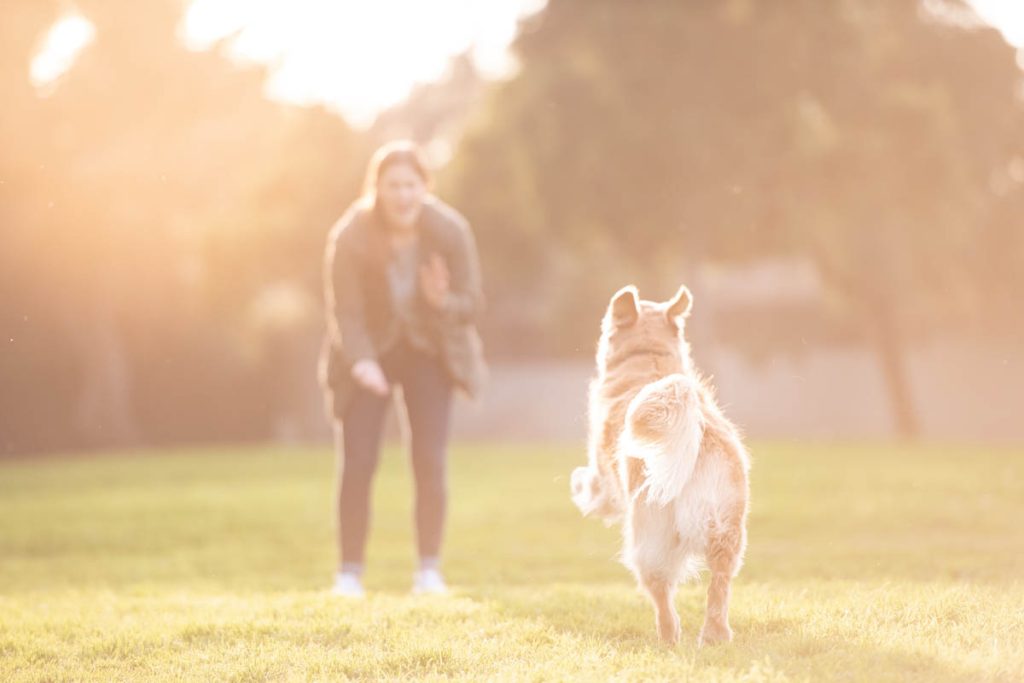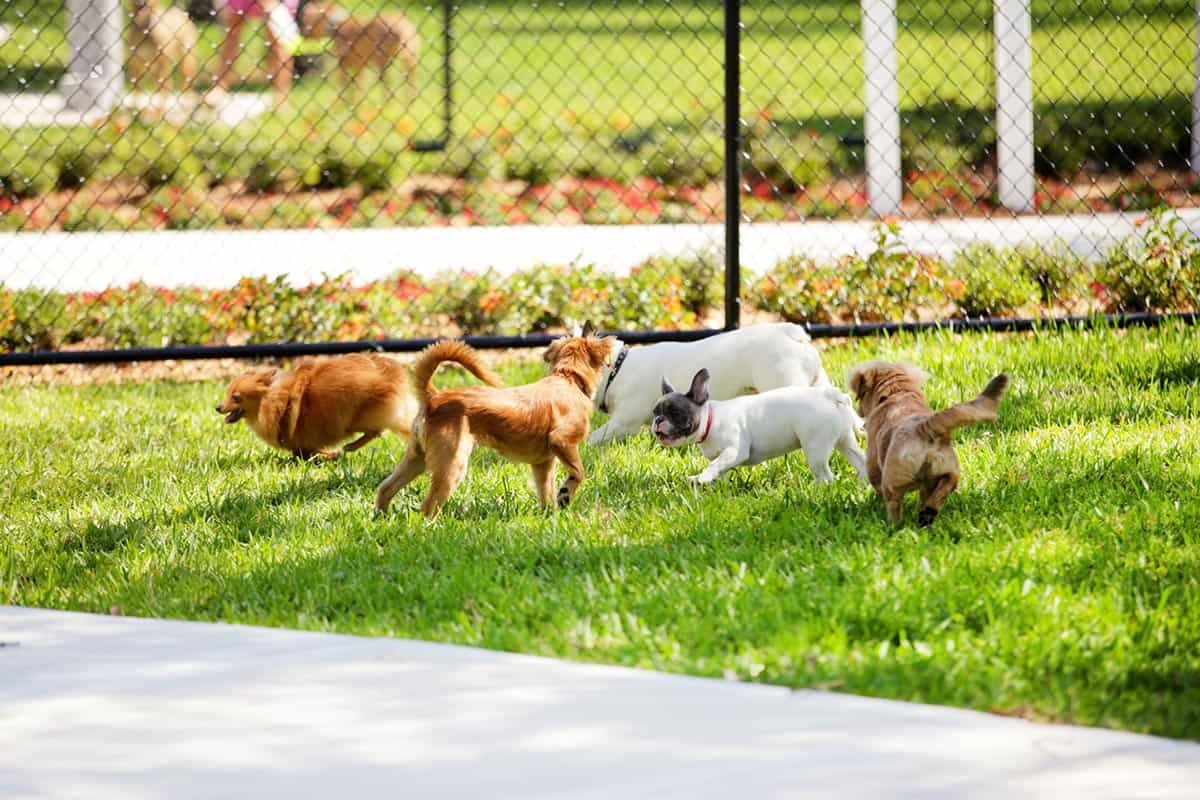Dog parks are staples in most American towns and cities these days. While they can be great for dogs suited for those kinds of environments, not all dogs are ‘dog park’ dogs. And that’s ok! Whether you are an experienced dog park goer or a novice, it is absolutely essential to practice dog park etiquette for the safety of everyone involved.
Pet parents need to know what they’re getting into before seeking out the potential benefits of dog parks for their furry companions.
Dog Park Etiquette

Dog parks can be wonderful playgrounds for well-socialized dogs. However, it’s important to prioritize your dog’s safety and well-being. Before you head to your local dog park or dog run, here’s a guide for pet owners to ensure a positive dog park experience:
1. Know Your Dog
- Temperament: Not all dogs are cut out for off-leash group play. If your dog is reactive, nervous, scared, or has a history of dog fights, consider working with a dog trainer or behaviorist. If you have an older dog with a low tolerance for excitable youngsters (that means small children and puppies), leave them at home. Forcing a reactive or anxious pup into an environment like that puts them and others in danger and does not meet your dog’s needs.
- Resource Guarding: If your dog is possessive of dog toys, there is a likelihood for a fight to break out. Either choose a dog park with no toys or keep them at home.
- Dog Body Language: Learn to read your dog’s body language. Are they excited, nervous, or overwhelmed? If your dog seems stressed, it’s best to leave. Dog training classes are great for getting to know your dog’s body language in instances like this.
2. Be a Responsible Pet Parent
- Clean Up After Your Dog: This is the golden rule of dog parks! Always carry poop bags and dispose of your dog’s feces properly. No one wants to step in a surprise!
- Vaccinations: Is your dog up-to-date on all their vaccinations? This protects your dog and others from preventable diseases.
- Spay/Neuter: Check your local laws, as many dog parks make spaying and neutering a prerequisite to admittance. A lot of people may overlook this.
- Supervise Your Dog: Don’t treat the dog park as a drop-off zone. Keep an eye on your dog’s behavior and interactions with other dogs and be prepared to intervene if necessary. If your dog is prone to humping strange dogs, for example, they shouldn’t be there. A bad experience is preventable if all humans are paying attention.
- Respect Other Dog Owners: Pay attention to the size and play styles of other dogs in the park. A boisterous retriever might not be the best playmate for a timid Chihuahua. Just like a snappy little Cavachon isn’t the best pairing with a shy large dog.
3. Mind the Age and Size
- Puppy Playdates: Young puppies that haven’t finished their vaccinations should not go to the dog park. Consider puppy socialization classes or fenced-in areas specifically for young dogs.
- Size Matters: Many dog parks have separate playtime areas for big dogs and small dogs. This prevents accidental injuries during play.
Giardia, Bordetella, Distemper, Oh My!
Just like a daycare or kennel, dog parks are breeding grounds for bacteria, viruses, fleas, and ticks. Make sure your doggy is on preventative medication and keeps away from poop that hasn’t been cleaned up.
By following these simple rules, we can all ensure a safe and positive experience for our furry friends.
Bonus Tip: If you’re unsure about your dog’s suitability for the dog park, consider a trial run during off-peak hours when there are fewer dogs. This can help you gauge your dog’s comfort level and ensure a positive first experience!
3 Safer Dog Park Alternatives

As you can probably discern, dog parks are not natural, instinctive environments for dogs. There are a lot of risks. As such, it’s up to us as pet parents to keep them safe. Here are some dog park alternatives guaranteed to provide plenty of fun for your pup.
- Hike/walk in the woods: Take your pup on a hike or stroll through the woods! All the new sights and smells are sure to provide plenty of physical and mental stimulation for your dog.
- Rent a yard: Sniffspot is an app where pet parents can rent a fenced area for their pup to play and roam free. It’s like an Airbnb for your own private off-leash dog park.
- Playdate: Is your pooch ambivalent about new dogs? Does your dog have a dog friend you know they get along with? Schedule a playdate with your own dog and their bestie if they’re known to play well together.
No matter which option you choose, don’t leave any dog poop behind, and make sure there’s always a water bowl!
Remember:
- Dog parks are not a replacement for proper training or socialization.
- Always supervise dog play.
- Follow dog park rules.
- Smaller dogs should play in the small dog area. Larger dogs in the large dog area.
- Respect other dog parents and their dogs.
- If you see aggressive dogs or signs of reactivity, remove your dog from the situation immediately.
